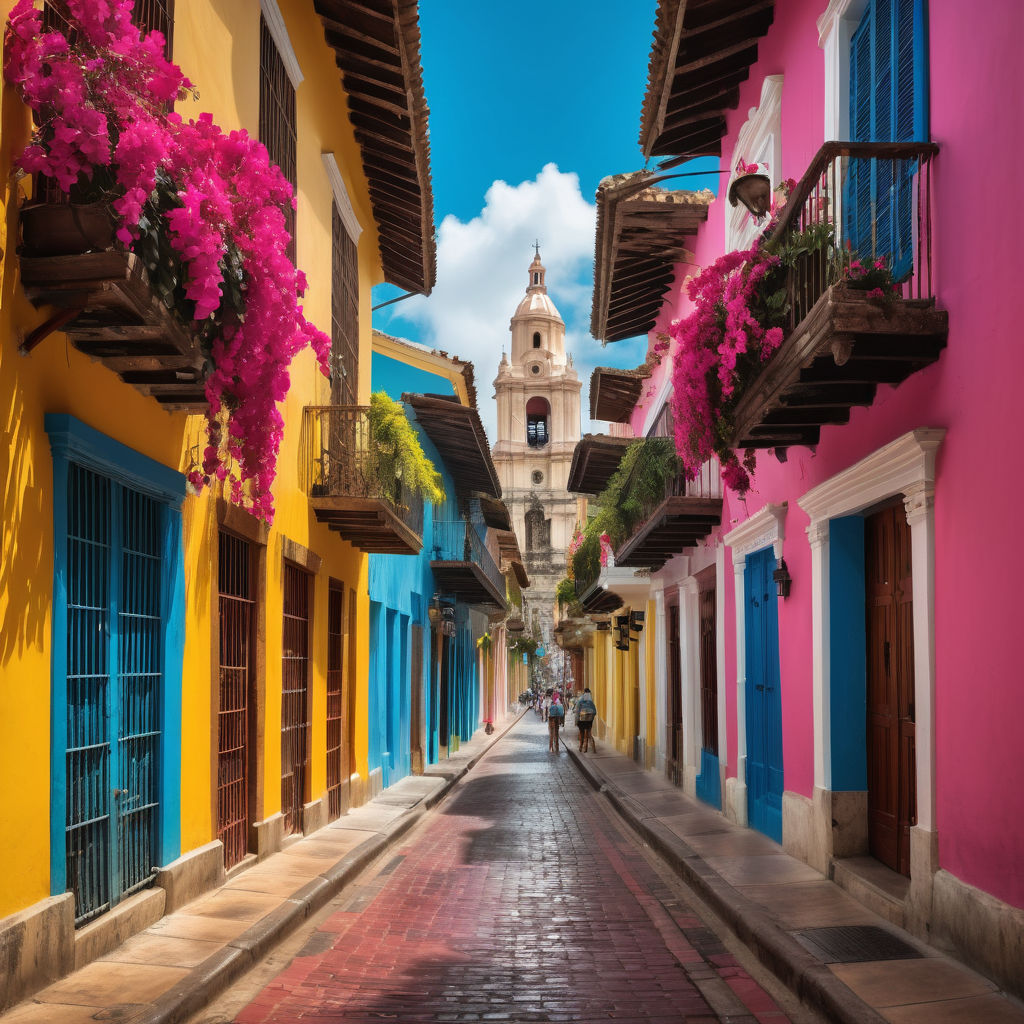Discover Colombia: Cultural Heritage, Social Dynamics, and Global Engagement
Exploring Colombia's Rich Heritage, Cross-cultural Understanding, and Social Interactions

Introduction to Colombia
Colombia, officially known as the Republic of Colombia, is located in the northwestern part of South America. It is bordered by Venezuela and Brazil to the east, Peru and Ecuador to the south, and Panama to the northwest. Colombia has coastlines along both the Caribbean Sea to the north and the Pacific Ocean to the west. Major cities include Bogotá (the capital), Medellín, Cali, Cartagena, and Barranquilla. Colombia’s rich cultural heritage is a blend of Indigenous, African, and Spanish influences, reflected in its vibrant music, dance, literature, and cuisine. The country is famous for its coffee, emeralds, and the annual Barranquilla Carnival.
Cross-national and Cross-cultural Understanding
Colombians generally engage with other cultures with openness, friendliness, and a deep sense of curiosity. The country’s historical role as a crossroads of different cultures has fostered a strong appreciation for cultural diversity and global interaction. Colombia actively promotes cross-cultural understanding through various initiatives and programs. Significant cultural exchanges and educational programs highlight Colombia’s commitment to fostering global engagement. Institutions such as the Colombian Ministry of Culture and ProColombia promote Colombian culture internationally through events, festivals, and language courses. Additionally, the government supports scholarships and exchange programs that facilitate academic and cultural exchanges, fostering mutual understanding. International partnerships also enhance cross-cultural understanding. Colombia is an active member of international organizations such as the United Nations, the Organization of American States (OAS), and the Pacific Alliance, promoting cultural cooperation and exchange. These partnerships facilitate student exchanges, collaborative research projects, and cultural festivals, strengthening Colombia’s cultural ties with the world.
Interactions and Social Dynamics
Interactions between Colombians and foreigners are typically characterized by warmth, friendliness, and a strong sense of community. Colombian social behaviors are influenced by cultural values such as "amistad" (friendship), "familia" (family), and "solidaridad" (solidarity). These values are often reflected in the way Colombians engage with outsiders. Social behaviors in Colombia emphasize respect and politeness in initial interactions, quickly becoming more informal and warm. Greetings often involve a handshake or a kiss on the cheek, depending on the level of familiarity and respect. Hospitality is a significant aspect of Colombian culture, and guests are often treated with great care and generosity, frequently invited to share meals and participate in social gatherings. Communication styles in Colombia are generally expressive and direct. Colombians value honesty and clarity in communication, often engaging in lively discussions and debates. Non-verbal communication, such as hand gestures and facial expressions, plays a significant role in interactions, adding to the overall expressiveness of conversations. Language plays a crucial role in facilitating interactions. Spanish is the official language of Colombia, while English is widely taught in schools and spoken by many in urban areas, especially in business and tourism sectors. Multilingualism is valued and encouraged, especially in educational and professional settings.
Views on Dating and Relationships
Dating and relationships between Colombians and foreigners are common and generally viewed positively. Colombian society is open-minded about cross-cultural relationships, seeing them as opportunities for cultural exchange and personal growth. However, cultural expectations and traditions can still influence dating dynamics. In Colombian dating culture, there is often an emphasis on mutual respect, compatibility, and family approval. Relationships are typically pursued with a long-term perspective, and there is a strong focus on emotional connection and shared values. Gender roles can be more traditional, with expectations for men to be providers and protectors, and for women to be nurturing and supportive. Cultural expectations and traditions, such as the importance of family approval and respect for elders, can impact relationships. Understanding and respecting these cultural norms is essential for successful cross-cultural relationships in Colombia.
Marriage and Family
Marrying foreigners is widely accepted in Colombia, although it comes with certain social and familial considerations. Legal considerations for such marriages are straightforward, with clear regulations for international unions governed by Colombian civil law. Socially, Colombian families may initially have reservations about cross-cultural marriages due to concerns about cultural differences and social compatibility. However, acceptance typically increases as relationships develop and families get to know the foreign partner. Family plays a central role in Colombian culture, and marrying into a Colombian family often involves participating in family gatherings and traditions. Common practices in cross-cultural marriages include celebrating both Colombian and foreign traditions, creating a blended cultural environment. For example, a couple might celebrate Colombian holidays like Independence Day and Christmas alongside holidays from the foreign partner’s culture.